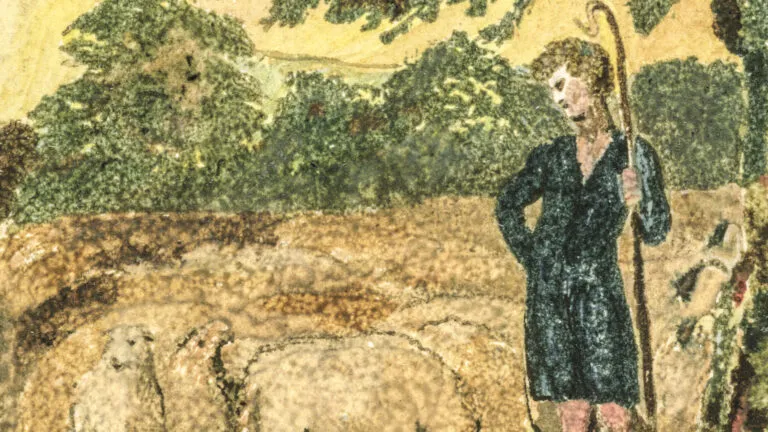In 2015, philosopher and author Dr. Sharon Hewitt Rawlette had an experience that changed the course of her career—and her life. She was on a weekend getaway in Pennsylvania with a college friend. In the weeks leading up to the trip she’d been thinking about another friend, one she’d made while living in France. They’d fallen out of touch years ago, but for some reason he was on her mind. She wondered if she should reach out to him, but the situation was complicated, so she decided not to. During her getaway, Dr. Rawlette and her friend were trying to find a grocery store. Using her phone’s voice command, her friend asked GPS to locate the nearest grocery store, then handed the phone to Dr. Rawlette to read.
“When the map popped up, it wasn’t showing me grocery stores in Pennsylvania,” says Dr. Rawlette. “It was showing me grocery stores in Carhaix, France.”
Her French friend didn’t live in Carhaix. Didn’t even visit often, as far as she knew. Still, it was too strange to ignore, and when she returned from her trip she sent him an email. Her friend was happy to hear from her. As they caught up, he told her about his recent trip to…Carhaix! Accounting for the time difference, he’d been visiting there the same day the GPS had shown the town.
Intrigued, Dr. Rawlette vowed to better understand the phenomenon behind her strange experience. Was it random chance, or was it something more? She spent the next five years collecting accounts and reviewing research on coincidences. She compiled her findings in her book, The Source and Significance of Coincidences.
I decided to reach out to her to learn more about a question so integral to all of the awe-inspiring stories you read in Mysterious Ways: What tips the scale from serendipity to something ordained?
Dr. Rawlette found that the events she studied were both highly improbable and highly significant. In some cases, she found that the odds that an improbable event occurred, and that it had significance to the experiencer, were astronomical. So unlikely that it appears to point to a divine force working behind the scenes.
The improbability factor can be calculated mathematically. Of course, each situation is unique, but here’s a hypothetical. Let’s say you’re thinking of calling a friend but you keep putting it off. You happen to play a board game with your family. Each turn in the game requires you to roll the dice seven times. During one of your turns, you realize that, when strung together, your rolls add up exactly to your friend’s phone number.
Incredible, right? Dr. Rawlette calculates that the probability of any combination of numbers on seven dice rolls is 1 in 279,936. That’s pretty unlikely. But what’s the probability of rolling that combination of numbers at the same time that you’re thinking of calling your friend? What’s the probability that this string of random numbers will mean something to you?
Which brings us to the next part of the calculation: significance. “These occurrences are not only very improbable—very hard to explain away—but they also carry with them a strong emotional weight,” Dr. Rawlette says.
She describes the case of a woman who, feeling lonely and dejected, was staring out her window at a magnolia tree. She wished for a sign from God, something to let her know he was with her. As soon as she had that thought, she watched one of the tree’s flower buds, tightly closed just moments before, unfurl before her eyes. Not only was this woman improbably there and watching at the precise moment the flower opened, but the event satisfied a deep spiritual need for her as well.
Even experiences that initially feel negative can turn out to be heaven sent. Dr. Rawlette tells the story of Jenny Saunders, who, on the morning of April 10, 1980, awoke to find that her living room walls appeared to be bleeding. I’ve heard of this happening before. If it gets humid enough, the latex in paint can re-liquefy, leaving behind a reddish residue. (It’s actually a relatively common problem.)
Still, it felt like more to Jenny. Finally she made the connection. Months earlier, she’d had a miscarriage. If the baby had survived, the birthday would’ve been April 10. The day the wall started “bleeding.” Realizing she hadn’t yet worked through her grief and guilt, she sought out therapy.
What was at first a terrifying experience led Jenny to confront the complicated feelings she’d been harboring. “Experiences like this are trying to draw our attention to something in our emotional life that is unpleasant but needs to be dealt with,” says Dr. Rawlette. “Just like nightmares. We have difficult dreams because we’re processing difficult emotions. Improbable coincidences like Jenny’s are like waking dreams.”
Whether initially calming or unpleasant, these experiences ultimately lead us to a place of strong faith and healing. “They help us learn something about ourselves and our relationship to God,” says Dr. Rawlette. “Our spirit is expanded by the way those experiences influence us.”
For Dr. Rawlette, these events also bring a newfound comfort by showing us the intricate interconnectivity between all things. “Look at how the outside world is reflecting what you feel inside! We’re all connected,” says Dr. Rawlette. “We are never as isolated as we feel.”
Since our conversation, I’ve thought about coincidences in my own life. I don’t think I’ve ever experienced something as incredible as the things I’ve heard described during my time here at Mysterious Ways. But something keeps popping up. It’s a number: 218.
I was born February 18—2/18—and it seems that the number always follows me. Flight numbers, receipts, phone numbers. I see it everywhere, especially when I’m dealing with something difficult and in need of some reassurance. I’ve lost count of the times I’ve been having a rough day and been suddenly uplifted by randomly looking at the clock to see that it was 2:18.
I’ve done the calculations. There are 24 hours in a day, 60 minutes in an hour. That’s 1,440 minutes in a day. Every day it’s 2:18 for two minutes. Two out of 1,440 can be reduced to 1/720. So that means there’s a 1-in-720 chance of my checking the time and noticing it’s 2:18. Everyone has the same chance, the same odds, but 2:18 has more significance to me than it does for everyone else. And the fact that it usually happens when I’m feeling stressed or overwhelmed is even more incredible. A divine reminder that I’m not alone.





